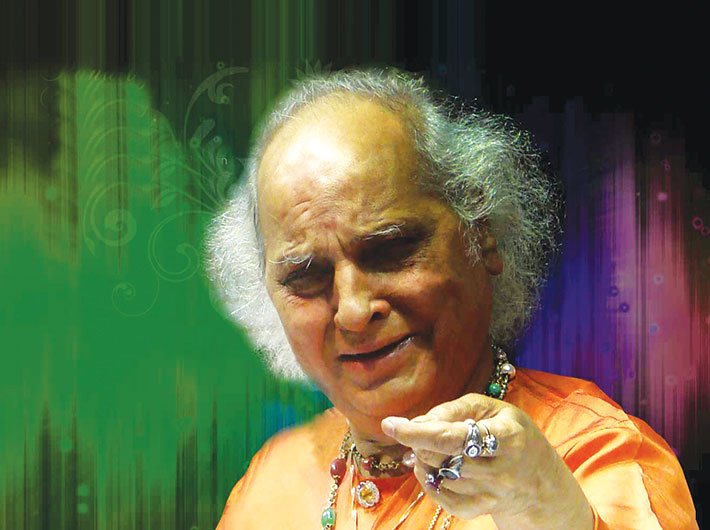Born in a small village near Hisar in Haryana, Pandit Jasraj comes from a family of musicians of over four generations. Jasraj was initiated to music by his revered father, Pandit Motiram. Soon after his death, Jasraj went through intensive tutelage under his elder brother and guru, Pandit Maniram, and later under Maharaja Jaiwant Singh. He performed in the Mewati gharana style. Jasraj’s voice is known for its vocal range, extending over three-and-a-half octaves, perfect diction, clarity in sur and gayaki and command in all aspects of laya and rhythm. Jasraj has also trained young vocalists like Rattan Mohan Sharma and Kala Ramnath. He was awarded the Padma Bhushan in 1990 and the Padma Vibhushan in 2000. Recently, he sang ‘Namami Devi Narmade’, the anthem of the Narmada Seva Mission of the Madhya Pradesh government.
What is your mantra for success?
I’m a musician, so I would say that in order to be successful, just follow your guru’s teachings. You need to completely surrender to your guru. Our parents and guru are the living divine for us. The mantra lies in guru bhakti [devotion to your Guru] and through it success will surely be achieved.
How has the world of music changed over time?
What we say is alive, if that does not undergo change, then it’s not really alive. Changes are necessary. What doesn’t change is essentially dead. Just as a child at home grows up, becomes a young man and then gets old. This is such a slow process that no one can actually see the change happening. Similarly, music is alive and it is changing so slowly that it’s hard to say how it has changed.
You created a novel form of jugalbandi called Jasrangi. What makes it special?
What makes Jasrangi jugalbandi special is that a male and female singer sing together, but both are singing different ragas. Both these ragas share the same notes but their style of singing and the movement of the ragas are totally different. Both these ragas meet via a technique called ‘moorcchana bhed’ in Indian classical music. That is what makes it unique.
You have the sense of many forms of music. What is it that makes Indian music unique?
Our music is based on the shastras. In this music, ragas are sung based on the time of the day. Bhairav raga is sung in the morning, Marwa in the evening and Darbari at night. Do you know why? It’s because, at these particular times of the day, these are the notes that are circling the atmosphere. This is why a musician, whose mind is open, can hear these musical notes in nature at these times of the day. It has happened to me more than once that I have tuned my swarmandal at the green room for a particular raga, which is in accordance to the time of the day, but when I reach the stage, I put the swarmandal aside and decide to sing a different raga. Do you know why? While walking up to the stage, I hear totally different notes in the environment. What I had tuned my instrument for, and what is present here [on the stage] are different. In such cases, I just put my instrument aside and sing what I hear. If the musician is able to hear and understand what is present in the atmosphere at a given time of the day, the music will be very effective. This is the uniqueness of Indian classical music. An artist constantly engages in creation through musical notes.
The Bhakti tradition and the Sufi movement impacted music greatly centuries ago. Is it true even today? Are they connected in some way?
There have been many forms of music that have originated from Bhakti tradition. Bhakti sangeet has originated from Sama Veda. Whether you recall it from the shastras or from Ramakrishna, bhakti is the oldest form of music. Sufi music is also, in some way, bhakti music. Islam calls it Sufi, but it ultimately is devotional, normally using words like Allah. Sufi music goes more towards the qawwali style of singing.
Tell us about your association with the river Narmada?
In India, we consider rivers as our mother, they are life-giving. Every Indian is associated with one river or the other because rivers are the source of life. I recently recorded music for the Narmada.
If you were to give a piece of advice to your younger self, what would it be?
One can get the correct advice at the correct time, either from their guru, or if one’s intellect blooms, they themselves can decide what is right for them. I do not want to give any advice to my younger self. Whatever mistakes were made in my life cannot be fixed now, and the mistakes that didn’t happen have already brought me where I am today.
(The interview appears in the August 1-15, 2017 issue of Governance Now)



